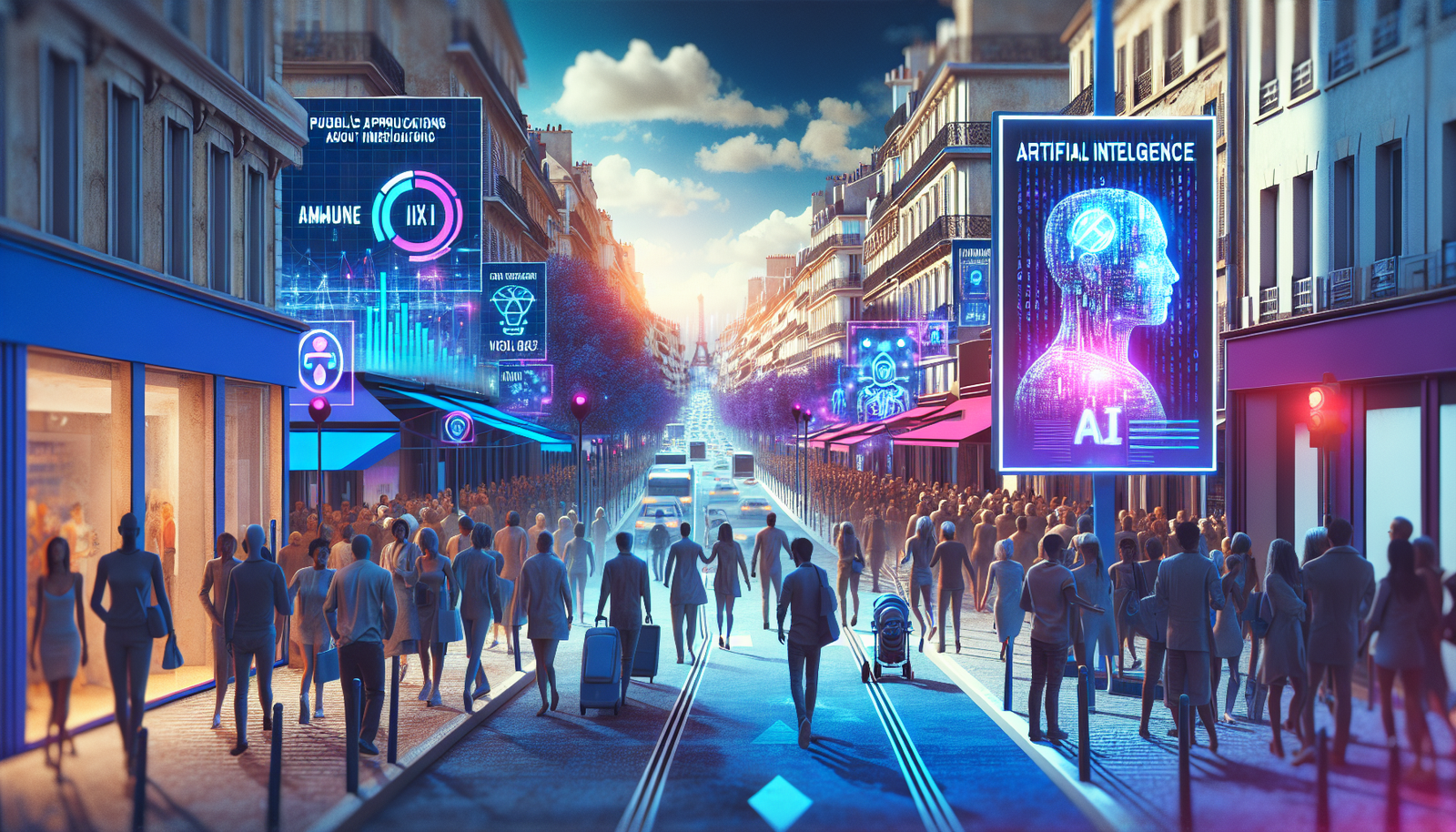AI Usage Statistics
On a national scale, a recent Ipsos study reveals that 88% of the French recognize at least one artificial intelligence tool. However, only 39% of the population uses these tools regularly. The adoption of AI is more pronounced in personal contexts (33%) than in professional ones (15%).
Young adults, particularly those aged 18 to 24, show a usage rate of 74%, compared to 55% for the 25 to 34 age group. Even among seniors (60-75 years), one in six respondents uses these technologies. This distribution highlights generational disparities in AI adoption.
Popular AI Tools
ChatGPT is the most widely used AI tool, with a 80% user share. Gemini, its main competitor, shows only 30% usage rate. Paid subscriptions to ChatGPT (14%) are close to those of Microsoft Copilot (15%), while Claude and Mistral struggle to reach 4% and 6%, respectively.
AI uses are spread across several tasks, with online research being the primary activity (48%). Users also turn to AI for text writing (38%), translating (36%), or idea generation (35%).
Daily Use of AI
AI users display a notable frequency of use, with 21% using AI tools every day and 78% at least once a week. Occasional users remain a minority, with only 9% at work and 15% in their daily lives. The integration of ChatGPT Search, linking responses to verified sources, underscores the shift towards alternatives to traditional search engines.
Citizen Concerns
The rapid development of artificial intelligence raises numerous concerns among citizens. Three main themes emerge from the concerns analyzed by Ipsos. Firstly, the reliability of the answers generated by AI tools is subject to criticism. The French fear the spread of false information and the difficulty in discerning truth from falsehood.
Next, the lack of ethics surrounding the use of personal data constitutes another major concern. Citizens question the protection of their privacy and the potentially malicious use of AI, as well as its environmental impact.
Finally, the effect of AIs on human dependence raises questions among the French about the automation of certain tasks. Fears arise regarding individuals’ ability to think critically and the risk of standardization of ideas. This concern also affects employment, with apprehension towards the automation of various professions.
Context and Ongoing Initiatives
On February 9, 2025, the President of the Republic announced an investment of 109 billion euros in artificial intelligence. This project aims to train 100,000 young people in AI tools and build data centers powered by nuclear energy. This initiative seeks to catch up with significant spending by the United States in the field, estimated at 500 billion dollars.
Through this approach, the French state aims to position AI as an assistant without replacing essential human skills. Such a willingness to support an innovative ecosystem could transform the technological landscape in France.
Frequently Asked Questions about Artificial Intelligence in France in 2025
What is the usage rate of artificial intelligence tools in France in 2025?
In 2025, approximately 39% of the French report using artificial intelligence tools, with more frequent use in personal contexts (33%) compared to professional (15%).
Which artificial intelligence tools are the most popular among the French in 2025?
The most used tools include ChatGPT, with 80% of users, followed by Microsoft Copilot (15%) and Gemini (30%).
What are the main concerns of French citizens regarding artificial intelligence in 2025?
The major concerns include the reliability of responses provided by AIs, ethical questions surrounding the use of personal data, and the potential impact on employment and human creativity.
Which age groups use artificial intelligence the most in France?
Young people aged 18 to 24 are the highest users, with a usage rate of 74%, followed by the 25 to 34 age group at 55%. Seniors (60-75 years) adopt AI less frequently, but one in six uses it.
How do the French mainly use artificial intelligence in their daily lives?
Nearly half of AI users (48%) use it for online research. Other uses include text writing (38%), translating (36%), and idea generation (35%).
What initiatives is the French government taking to promote artificial intelligence in 2025?
The French government has announced an investment of 109 billion euros to develop infrastructure and train 100,000 young people in AI in the coming years.
What are the risks associated with the use of artificial intelligence in terms of privacy?
The main risks concern the misuse of personal data, user privacy, and the ethical implications of using data without informed consent.
Does the use of artificial intelligence influence the labor market in France?
Yes, there are concerns about the potential impact on employment, with fears of standardization of ideas and increased automation of certain professions.
Can artificial intelligence tools replace human skills in 2025?
While AI can perform certain tasks, it is perceived as a complement to human skills, and the government emphasizes that it will not completely replace jobs and human skills.






